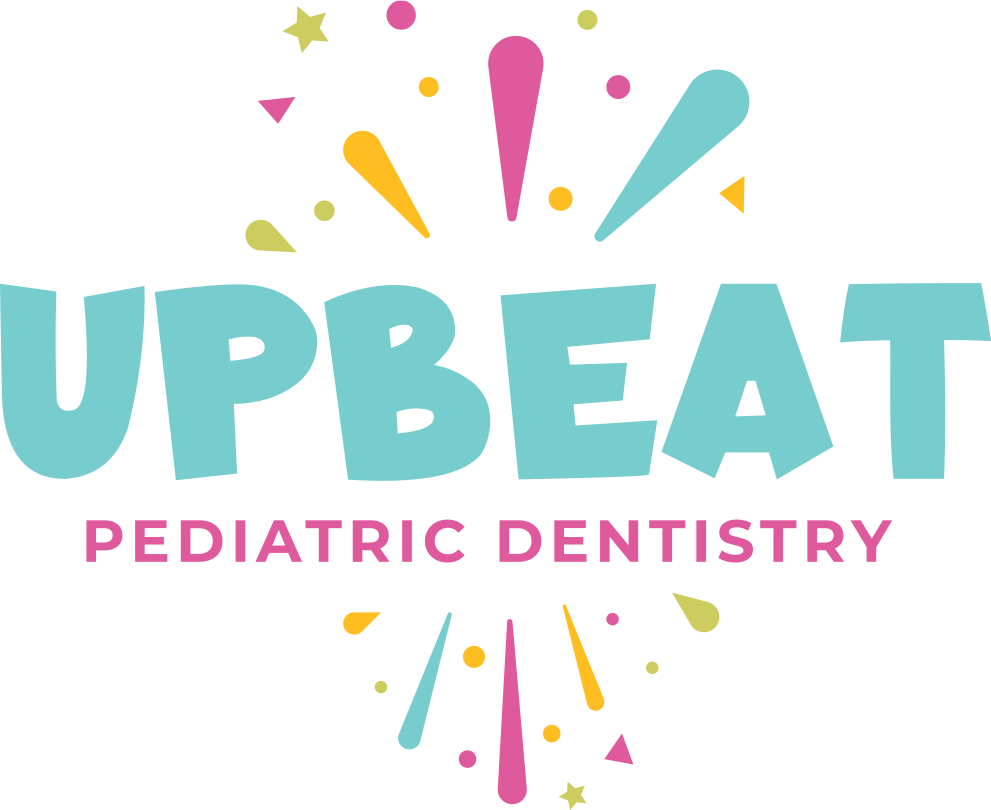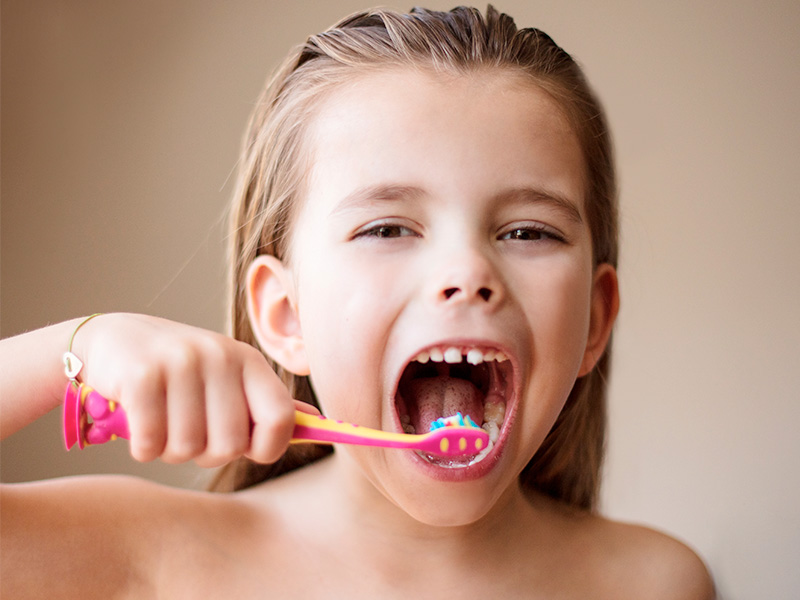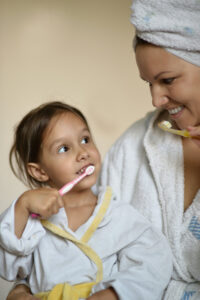Maintaining good dental hygiene is crucial for a healthy smile at any age. As parents, it’s essential to teach our children proper oral care practices from an early age to ensure they develop lifelong habits that promote optimal oral health. In this blog post, we will provide you with valuable dental hygiene tips to help your child achieve a healthy and beautiful smile.
At Upbeat Pediatric Dentistry, we are committed to supporting your child’s dental well-being and empowering you with the knowledge to promote good oral hygiene habits, so we brought you some tips on how to maintain a good oral health.
Start Early: Establishing Oral Care Habits from the Beginning
Starting dental care early in your child’s life sets the stage for a lifetime of healthy teeth and gums. Here are some key points to consider when beginning dental hygiene routines:
1. Clean Gums: Even before your child’s first tooth emerges, it’s essential to clean their gums gently after each feeding. Use a soft, damp cloth or a small, soft-bristled infant toothbrush to wipe their gums. This helps remove any residual milk or food particles and prepares their mouth for future toothbrushing.
2. Baby’s First Tooth: Once your child’s first tooth erupts, it’s time to transition to a soft-bristled toothbrush designed specifically for infants. Use a rice-sized amount of fluoride toothpaste to brush their tooth, focusing on the front and back surfaces. This helps prevent decay and gets them accustomed to the sensation of toothbrushing.
3. Early Dental Visit: As soon as your child’s first tooth appears, it’s recommended to schedule their first dental visit. The American Academy of Pediatric Dentistry recommends the first dental visit by their first birthday or within six months of the first tooth eruption. This initial visit allows the dentist to examine their mouth, assess their oral health, and provide guidance on proper oral care techniques.
4. Parental Assistance: Young children lack the manual dexterity to brush their teeth effectively on their own. Therefore, parents should assist them with brushing until they have developed the necessary skills, typically around the age of 6 or 7. This ensures that all surfaces of their teeth are properly cleaned, reducing the risk of tooth decay.
5. Establish a Routine: Consistency is key when it comes to oral care. Set a regular brushing schedule and make it a non-negotiable part of their daily routine. This helps create a habit and reinforces the importance of dental hygiene from an early age.
6. Use Age-Appropriate Products: Select toothbrushes and toothpaste specifically designed for children. Choose a toothbrush with a small head and soft bristles that can easily fit into their mouth and clean their teeth gently. Use fluoride toothpaste in an appropriate amount based on your child’s age and follow the recommendations of your dentist.
Brush Twice a Day
Brushing your teeth twice a day is one of the most fundamental and effective practices for maintaining optimal oral health. Here’s why this habit is crucial for your child’s dental well-being:
Brushing twice daily helps remove plaque, a sticky film of bacteria that accumulates on the teeth and gums. Plaque can lead to tooth decay, gum disease, and bad breath. Regular brushing ensures that plaque is consistently removed, reducing the risk of oral health problems.
It also helps prevent cavities, since tooth decay is a prevalent dental problem in children. By brushing twice daily, your child can remove food particles and plaque that contribute to the formation of cavities. Make sure your child uses a fluoride toothpaste as it strengthens tooth enamel and helps prevent tooth decay.
Regular brushing also helps keep your child’s breath fresh. It removes odor-causing bacteria and eliminates food particles that may cause bad breath. Encourage your child to brush their tongue gently as well, as bacteria can accumulate on the tongue’s surface and contribute to unpleasant breath.
Another benefit of brushing twice daily is promoting healthy gums. It helps remove plaque and food debris along the gumline, reducing the risk of gum disease and inflammation. Healthy gums are essential for maintaining strong teeth and a vibrant smile.
Floss Regularly
Once your child’s teeth start touching, it’s time to introduce flossing into their oral care routine. Regular flossing helps remove food particles and plaque from areas that a toothbrush cannot reach.
Teach your child the correct flossing technique from an early age. Help them use an appropriate amount of floss, approximately 18 inches, and guide them in gently maneuvering the floss between each tooth. Encourage them to curve the floss around each tooth in a C-shape and move it up and down to remove plaque effectively.
Set a positive example by flossing alongside your child. Make it a family routine to encourage everyone’s involvement in maintaining good oral health. By making flossing a shared activity, you create a supportive environment and instill the importance of oral care as a lifelong habit.
Limit Sugary Snacks and Drinks
Sugar is a major contributor to tooth decay. Encourage healthy eating habits by limiting sugary snacks and drinks, especially between meals. Instead, offer nutritious snacks like fruits, vegetables, and dairy products. Drinking water throughout the day helps rinse away food particles and maintain saliva production, which protects teeth.
Limiting sugary snacks and drinks is crucial for maintaining excellent oral health. By reducing sugar consumption, you can help prevent tooth decay and promote healthier dental habits for your child. Choose nutritious alternatives, prioritize water as the main beverage, and be mindful of timing and frequency of sugary treats. Read labels, encourage good oral hygiene practices, and involve your child in making informed choices.
Visit the Dentist Regularly
Visiting the dentist regularly is a crucial aspect of maintaining optimal oral health for your child. Regular check-ups provide professional dental cleaning, early detection of issues, thorough examinations, expert advice, and personalized treatment plans. By establishing a positive dental experience from an early age and monitoring growth and development, you set the stage for a lifetime of healthy oral habits.
Regular dental check-ups are essential for maintaining optimal oral health. Schedule routine visits to Upbeat Pediatric Dentistry, where our experienced team will monitor your child’s oral development, provide professional cleanings, and address any concerns. Regular dental visits also allow for early detection and treatment of any dental issues.
Instilling good dental hygiene habits in your child from an early age sets the foundation for a lifetime of healthy smiles. By following these dental hygiene tips, you can help your child maintain optimal oral health and prevent common dental issues. Remember, Upbeat Pediatric Dentistry is here to support you every step of the way. Schedule regular dental check-ups and reach out to our team for any dental concerns. Together, we can ensure your child’s smile stays bright and healthy for years to come.







